Inspiration
Written by Lindsay Krause
Luxury conservation safari brand, Singita has been an active contender in African travel for the past 25 years. Known not only for extraordinary game viewing experiences, Singita offers the ultimate culinary safari, with a dedicated team of highly qualified chefs servicing the 12 award-winning lodges and camps throughout 5 regions in Africa. As Singita continues to expand and diversify, their 100-year purpose remains – to protect and preserve large areas of Africa for future generations.
Originally from Cape Town, Frank Louw has worked for Singita for over 14 years. Starting out as a chef in the Kruger National Park, Frank’s journey took him and his family to Tanzania where he grew his career from Executive Chef to General Manager: Hospitality at Singita Grumeti. We caught up with Frank Louw to give you more insight into Singita’s culinary experience, the successful community development project Grumeti Horticultural and Marketing Co-op Society (GHOMACOS) and the Singita Serengeti School of Cooking.
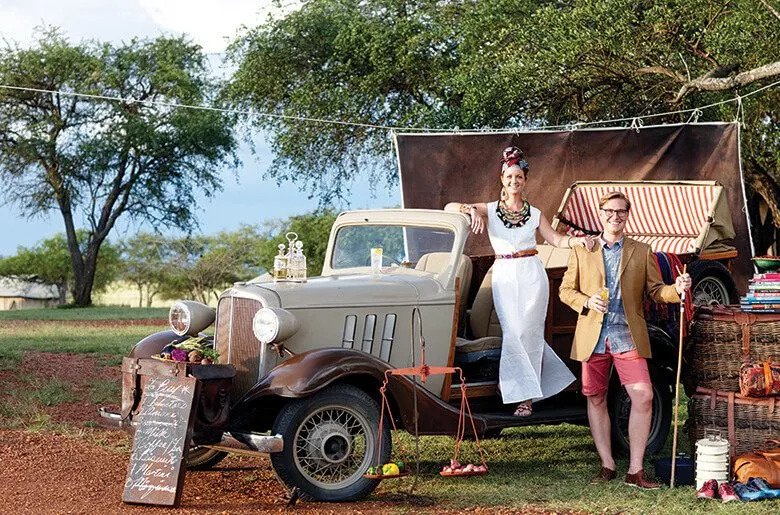
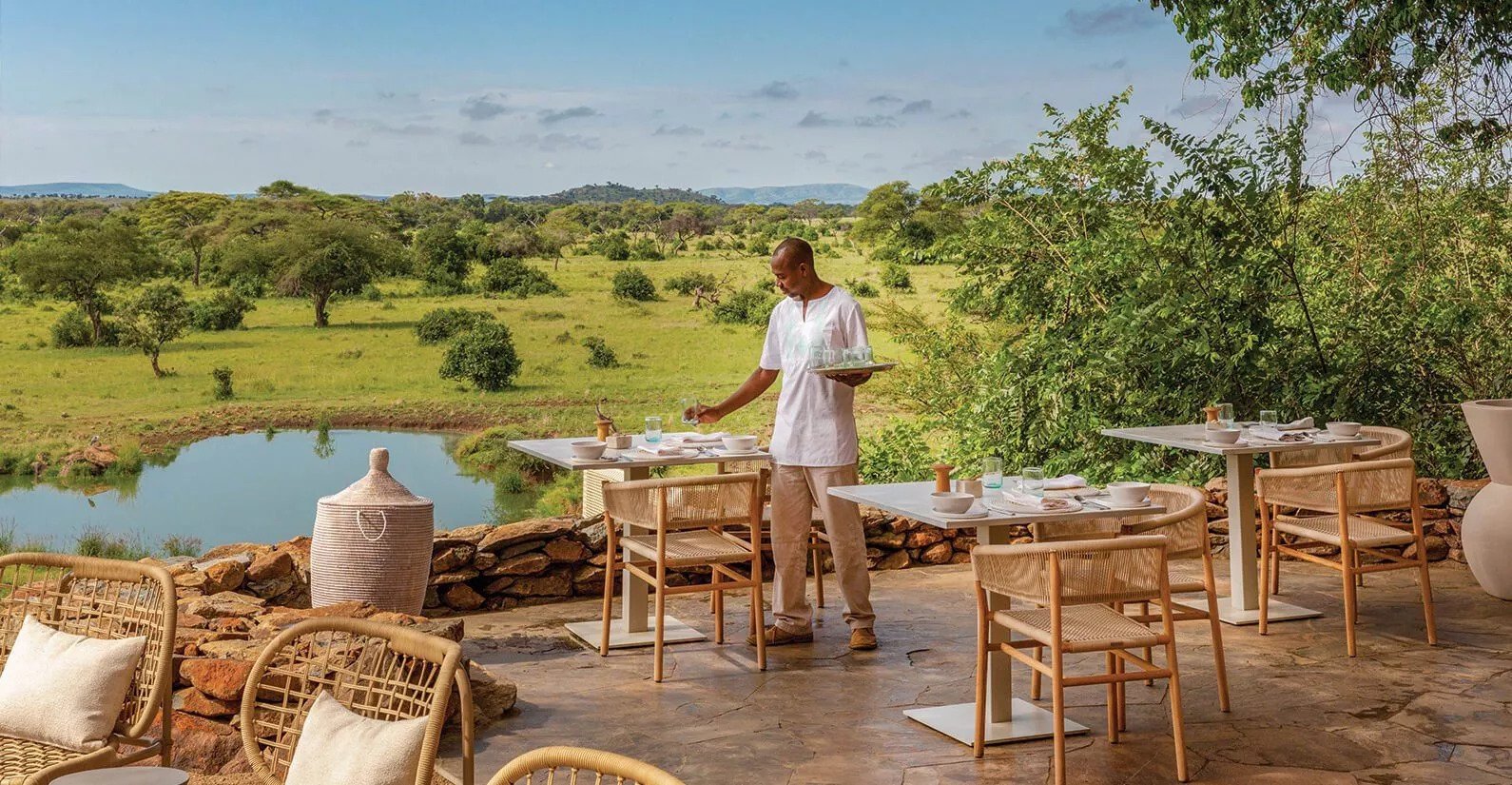
Frank.L : Food is integral to the lodge experience. At Singita Grumeti, we are shifting our focus to providing healthier dishes with a variety of flavours, using local produce. We have received incredible support from the local communities and about 80% of our fresh produce is provided by our local co-op, GHOMACOS. Using what is available to you in remote locations can sometimes be a challenge, however this really pushes our chefs to be creative, flexible and learn to work with what they have.
Singita recently published a cookbook which showcases our food philosophy of keeping local farmers and growers at the top of mind. Frank & Donna Louw created the cookbook alongside Georgina Pennington, Singita’s Group creative direction manager.
Profits from the sale supports two of Singita’s community cooking schools. Order here.
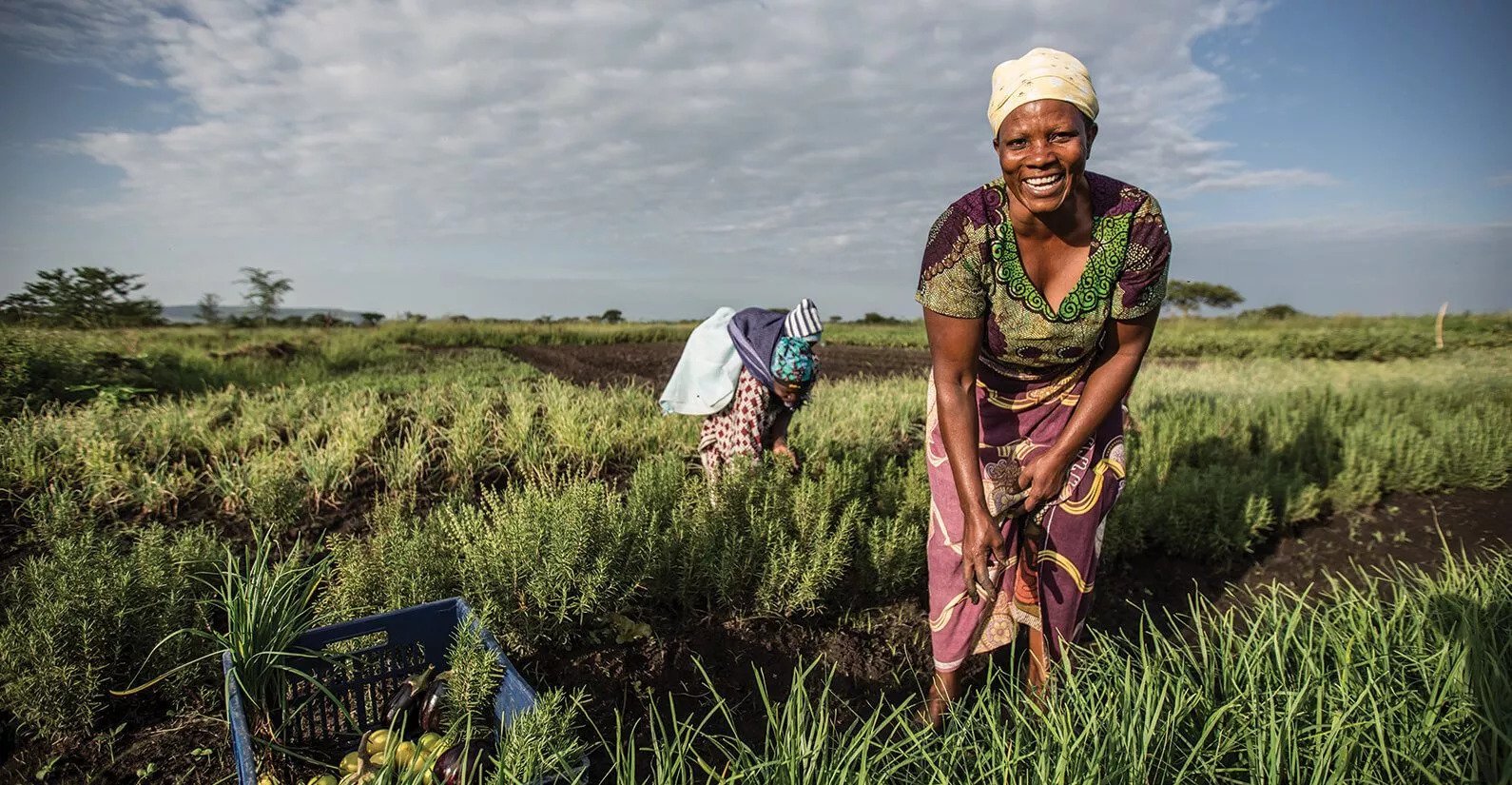
One of the most successful ongoing community development projects at Singita Grumeti is the Grumeti Horticultural and Marketing Co-op Society (GHOMACOS), supplying the lodge kitchens with a constant flow of high-quality, freshly harvested, locally grown vegetables, herbs and fruits.
Enterprise development through partnerships with local communities is a valuable and important part of the Grumeti Fund’s work in Tanzania. These projects boost the local economy and have a ripple effect on the wider community, providing employment and creating enormous potential for the people living in neighbouring villages.
With a reliable market in the form of Singita’s lodges in the region, the members of the co-operative were given access to low-interest financing to get their farms up and running, as well as assistance with technical training and business skills development. This support allowed GHOMACOS to grow into a large-scale farming organisation comprised of a few smaller, highly sustainable and environmentally-friendly businesses that ensured the financial independence of its members.
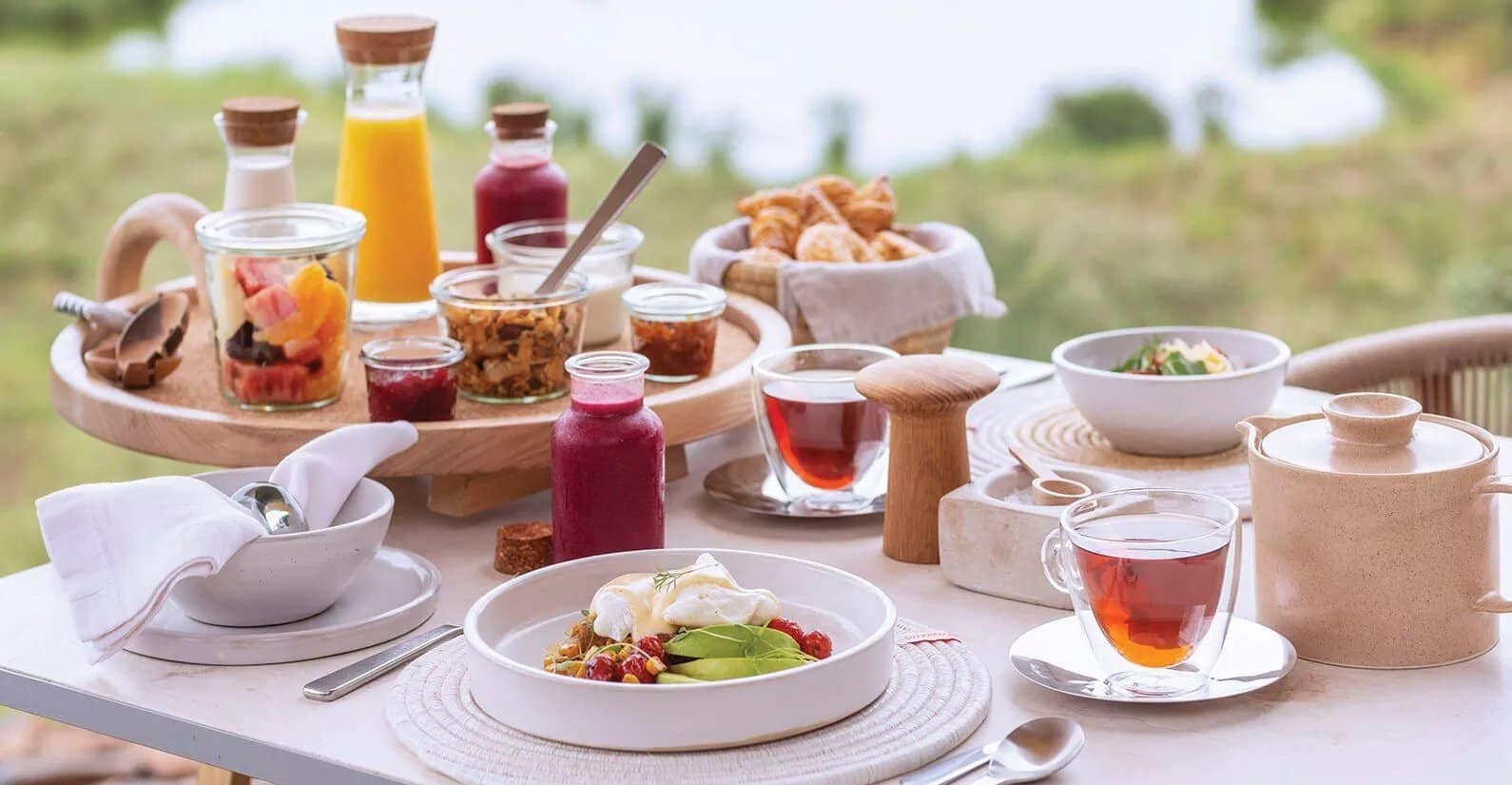
Singita Faru Faru introduced a tapas style lunch, served on platters as a sharing meal, the way a family would eat. The selection for breakfast and lunch is placed on the table, which allows guests to taste more than they would traditionally.
As a consultant, Chef Liam Tomlin had a huge influence on our new style of food. All meals are healthy, light, small portioned yet big on flavour and presentation.
Singita has launched a signature “bar-deli” concept – small and healthy snacks which are available all day to encourage guests to help themselves instead of having to wait for set dinner times. The bar-deli includes a mix of freshly squeezed juices, smoothies and savoury snacks.
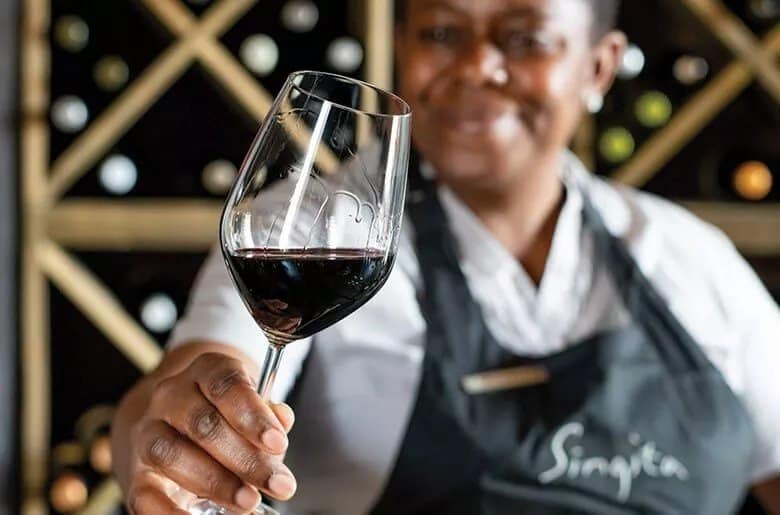
Extraordinary wines underpin the entire food journey at any Singita lodge, who all have a wine culture translated by sommeliers in camp. Singita is recognised as one of Africa’s most influential collectors of wine, with an extensive cellar showcasing a premium selection of wines, including some of the continent’s most sought-after private reserves, including exclusive release, limited single vineyard and rare auction wines. It’s safe to say that wine is a key ingredient to the unique Singita experience.
The Singita wine list has received numerous awards of excellence, the top Diners’ Club Wine List accolade as well as recognition from countless other local and international organisations.
François Rautenbach is responsible for this excellence as the director of Singita Premier Wine. He manages the selection, purchase, storage, and service of all the wines at Singita’s lodges. François also manages Singita Premier Wine Direct which allows guests to order their favourite wines from their safari to enjoy at home. With the Singita Premier Wine Direct service, wines can either be specially packed for guests as checked luggage or shipped directly to a guest’s home.
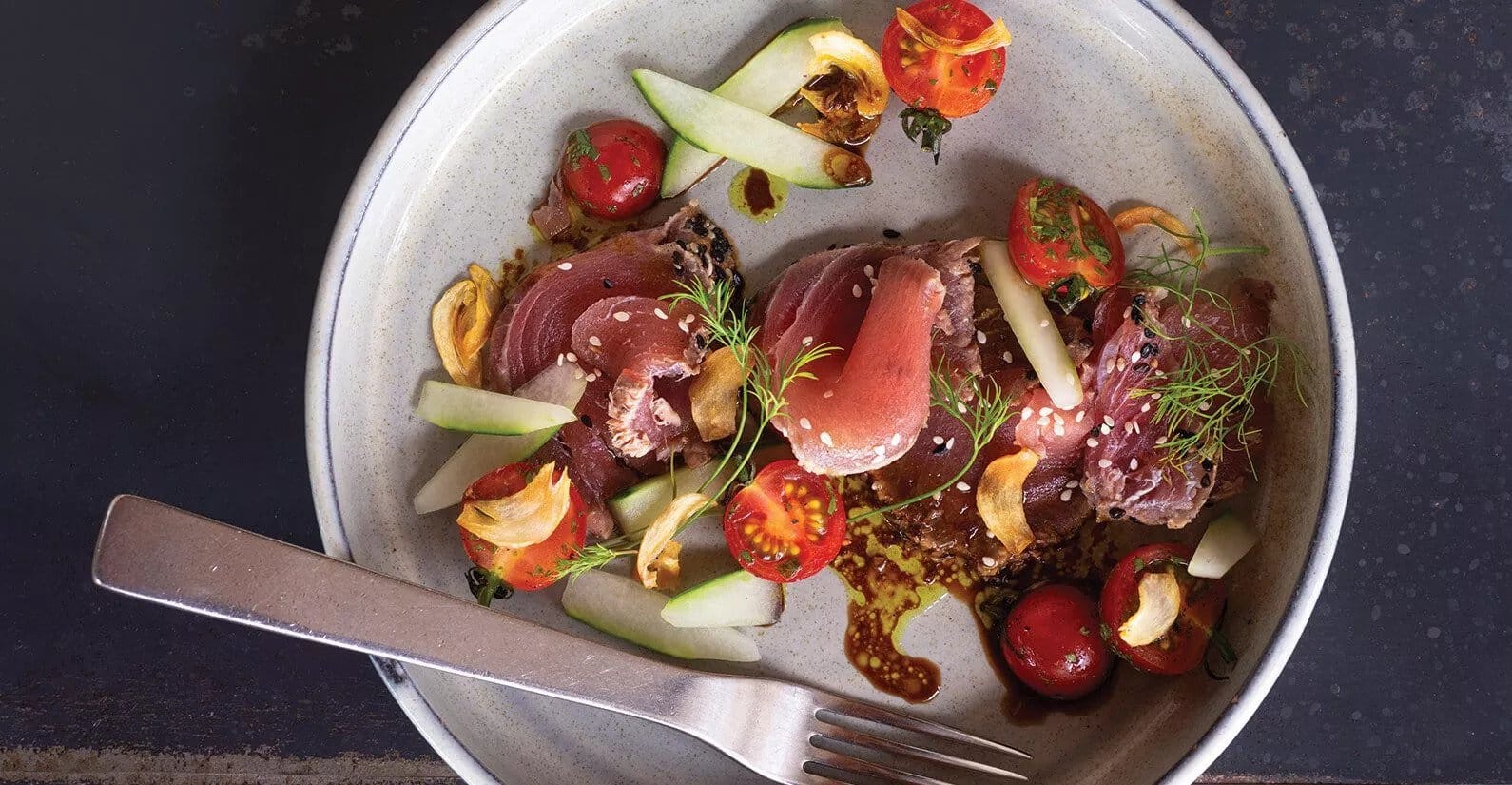
Frank.L : Our biggest challenges have become our greatest opportunities.
Our lodges in Tanzania are located in the Western corridor of the Serengeti National Park, therefore we source fresh produce from local farmers, and our conservation partner, the Grumeti Fund established GHOMACOS (Grumeti Horticultural Marketing Co-op as mentioned above).
This requires our Chefs to work with seasonal produce creatively, and elaborate menus can’t be planned in advanced because we aren’t able to source ingredients. This also means that we get fresh organic produce, which is incredible.
The Chefs thus have the opportunity to create something beautiful with limited resources.
Sourcing fish and meat in the Serengeti is always challenging, but we have established good relationships with our suppliers. Our procurement system ensures we can deliver exceptional standards that our guests have become accustomed to.
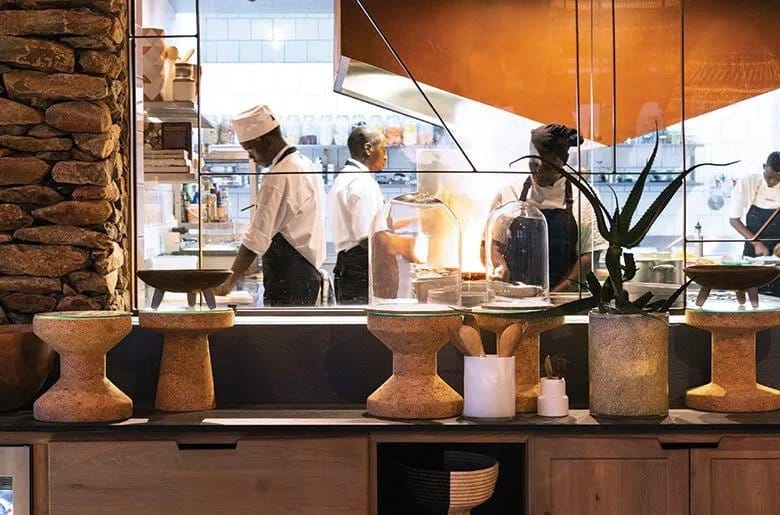
Frank.L : The interactive kitchen at Singita Faru Faru has been an amazing addition to the lodge. Guests love seeing their food being created and it gives the chefs an amazing opportunity to showcase their skills.
A new kind of culinary safari experience, the interactive kitchen brings guests closer to the food journey. Through the establishment of GHOMACOS, guests can tangibly see how the chefs prepare fresh, organic produce, sourced from community farmers, whose lives have been changed by the presence of Singita’s lodges. A full circle if you like.
Our guests are looking for real connections with staff, and this is a way for guests to meet kitchen staff they would not ordinarily see. They really enjoy getting to know the lodge staff and exchanging stories.

Frank.L : The Singita Community Culinary School (SCCC) started in 2007 at Singita Lebombo Lodge in an effort to uplift local communities and fulfil a need for highly skilled chefs for the South African hospitality industry. After the success of the cooking school in the Kruger National Park, Singita announced the opening of a second school in the Serengeti, Tanzania. The Serengeti School of Cooking, which opened four years ago, promises to give students the best education in the art of food (and wine).
As the hospitality and tourism industries in Tanzania continue to grow, so too does the demand for qualified chefs. The aim of the cooking school is not only to bridge this widening gap, but also to promote cheffing as a highly skilled occupation that offers great prospects for employment.
The course covers topics such as professional cookery, food production, catering, as well as communication skills, customer care and computer literacy. It will also offer practical training, with students getting the opportunity to put their knowledge to the test as members of the staff canteen and lodge kitchen teams.
We take in eight community students at a time to do an 18-month course. It’s been four years now, and we encourage a lot of girls to apply, and there are numerous success stories throughout the lodges.
I’m eager to not only share my passion for food with the students but do my bit to positively impact the lives of the communities within the Serengeti and surrounding Bunda districts. I hope that what we’ve started here will make a real difference in the lives of the students and their families.
Graduates from the Serengeti School of Cooking gain a nationally recognised Professional Cookery qualification, after which they can commence work as a Commis Chef level within a Singita lodge kitchen, or any other lodge or hotel within Tanzania.
Along with environmental sustainability, the support and upliftment of local communities is a key part of Singita’s role in preserving the wilderness areas of which it is a guardian. Other projects at Singita Grumeti in Tanzania, run by the Grumeti Fund include an Environmental Education Centre, a scholarship fund for local students, canine anti-poaching unit and small business development programmes that teach agricultural skills.
If you’re interested in adding a Singita lodge to your next African safari, get in touch with one of our expert Adventurists.
Head office:
7 Bree Street, 6th Floor, Touchstone House, Cape Town, South Africa
+27 (0)21 201 2484
[email protected]
United Kingdom: Sportsman Farm, St Michaels, Tenterden, Kent
Ker & Downey® Africa is compliant with COVID-19 Industry Protocols.


Head office: 7 Bree Street, 6th Floor, Touchstone House, Cape Town, South Africa
+27 (0)21 201 2484
[email protected]
United Kingdom: Sportsman Farm, St Michaels, Tenterden, Kent
Ker & Downey® Africa is compliant with COVID-19 Industry Protocols.